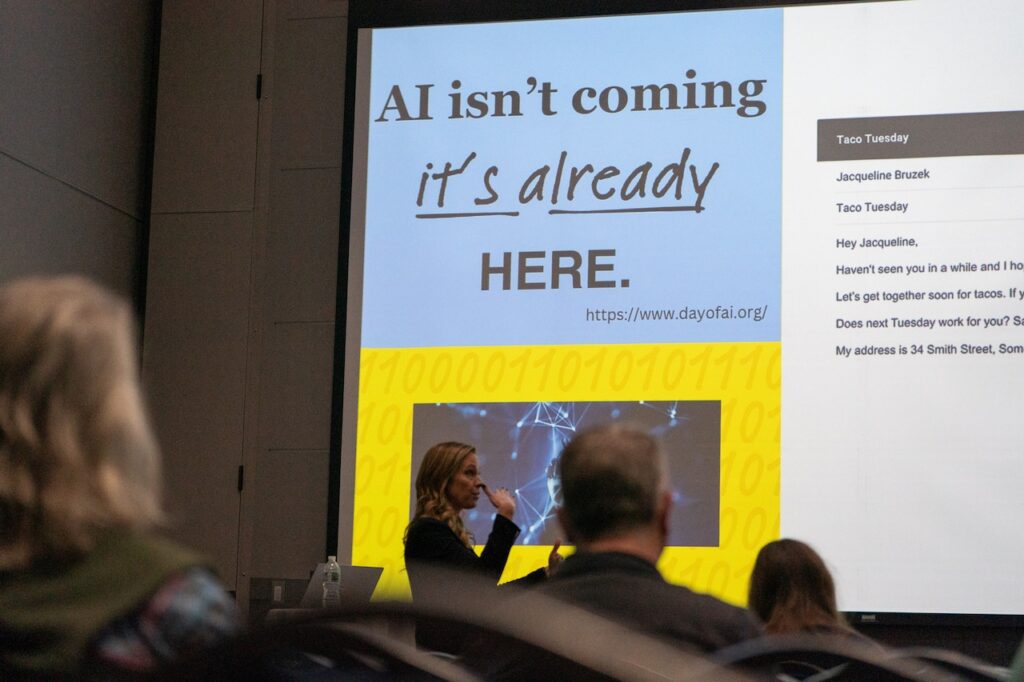As more students use generative artificial intelligence, also known as AI, higher education presidents and senior leaders say they are struggling to keep up, according to a 2024 survey conducted by the American Association of Colleges and Universities and Elon University.
In the survey of 338 university presidents and senior leaders, 59% reported that cheating has increased since AI tools became available. And 21% said it has increased a lot.
At the same time, more than half of leaders said faculty can’t effectively recognize artificially-created content. Seventy-four percent of leaders said current plagiarism detection tools are not effective at identifying AI-generated content.
“While our survey reveals significant growing pains as colleges adapt to AI — from concerns about cheating to gaps in faculty preparedness — there’s a clear recognition that we’re at an inflection point in higher education,” said C. Edward Watson, vice president for digital innovation at the American Association of Colleges and Universities.
“The challenge now is turning today’s disruption into tomorrow’s innovation in teaching and learning,” he said.
The survey comes after President Donald Trump on Monday rescinded an executive order from former president Joseph Biden which included frameworks for addressing the security risks and ethical difficulties of AI, according to Reuters.
Trump also announced on Tuesday up to $500 billion in investments for infrastructure tied to AI with a new partnership formed by OpenAI, Oracle and SoftBank.
While most of their students use artificial intelligence tools, most faculty don’t, in part due to resistance and distrust in the tools and concerns about diminished learning outcomes in students, according to the survey.
That divide makes a difference as professors are less familiar with the tools, thereby making it more difficult to determine whether a student has cheated.
While many institutions are changing — adding courses, majors and guidelines about the appropriate use of AI, higher education is lagging behind the innovation.
More than half of higher education leaders said that they are not ready to use AI to prepare students for the future and prepare faculty for the use of AI in teaching and mentoring.
Ninety-two percent of respondents said AI tools will lead to students’ overreliance on them with greater digital inequities and 66% are concerned about decreased attention spans.
At the same time, the leaders said they believe AI will improve research skills, improve students’ ability to write clearly and persuasively, help with student creativity and enhance and customize learning.
“The overall takeaway from these leaders is that they are working to make sense of the changes they confront and looking over the horizon at a new AI-infused world they think will be better for almost everyone in higher education,” said Lee Rainie, director of Elon University’s Imagining the Digital Future Center.
“They clearly feel some urgency to effect change, and they hope the grand reward is revitalized institutions that serve their students and civilization well,” Rainie said.

